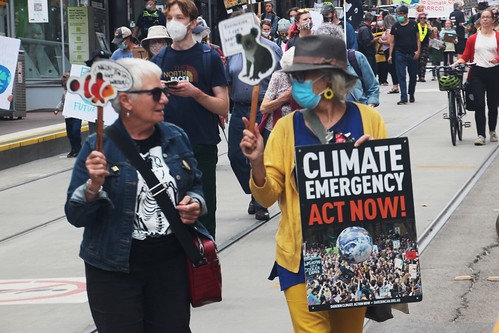Gurski: Emergencies Act ruling should be a stern lesson to government about free speech
Emergencies Act #EmergenciesAct

Breadcrumb Trail Links
The trucker convoy was a maelstrom of impoliteness and inconvenience. But it was not a ‘clear and present danger.’
Published Jan 25, 2024 • 3 minute read
 Police face off with demonstrators as they try to break up the trucker protest on Feb. 19, 2022. A Federal Court judge says using the Emergencies Act to quell the downtown occupation was not justified. Photo by Tony Caldwell /Postmedia
Police face off with demonstrators as they try to break up the trucker protest on Feb. 19, 2022. A Federal Court judge says using the Emergencies Act to quell the downtown occupation was not justified. Photo by Tony Caldwell /Postmedia
A quote apparently misattributed to Voltaire goes as follows: “I disapprove of what you say, but I will defend to the death your right to say it.” It is a foundation of our concept of freedom of speech.
This week’s Federal Court decision that the government illegally invoked the Emergencies Act in response to the “Freedom Convoy’s” shenanigans in 2022 may strike some as a bombshell but in fact it is a welcome reminder that the law is the law and and that we have fundamental rights as enshrined in the Charter.
Advertisement 2
This advertisement has not loaded yet, but your article continues below.
THIS CONTENT IS RESERVED FOR SUBSCRIBERS ONLY
Subscribe now to read the latest news in your city and across Canada.
SUBSCRIBE TO UNLOCK MORE ARTICLES
Subscribe now to read the latest news in your city and across Canada.
REGISTER / SIGN IN TO UNLOCK MORE ARTICLES
Create an account or sign in to continue with your reading experience.
Article content
Article content
Let us review the facts. A bunch of unruly yahoos parked 18-wheelers on Wellington Street, let off their horns incessantly, marched around with banners and flags, barbecued on the road, urinated in public, made a bloody disturbance of themselves and likely gave some Ottawa residents the middle finger.
What they did NOT do as a group is engage in acts of serious violence; threaten to kill people; or pose any real danger to the good people of the nation’s capital or across our great land. This was most certainly NOT a threat to national security and our own spies at the Canadian Security Intelligence Service (CSIS) even said so openly.
And yet in the midst of this maelstrom of impoliteness and inconvenience, one which local law enforcement somehow seemed powerless to disperse, the federal government brought in the Emergencies Act to save us all from annihilation at the hands of a dog’s breakfast of vaccine doubters, COVID deniers, Trudeau-haters and assorted hangers-on. The public, tired of the whole shebang, welcomed a swift end to the chaos.
Except that the Canadian government can only resort to this tool if there is a clear and present danger to national security (Section 16 of the Act). That danger happens to coincide with the definition of a threat to national security as determined by CSIS, which, as already noted, said there was none. So what gives?
Advertisement 3
This advertisement has not loaded yet, but your article continues below.
Article content
The Liberals now find themselves in a mess of their own making. They immediately announced their intention to appeal the Federal Court ruling and have also stated previously that the Act is in need of revision. The bottom line, however, is that the ruling says the government has trampled on Canadians’ rights to free speech under the Charter. We have a legal decision that the government broke the law.
Curiously, in his ruling Justice Richard Mosley did not disagree with the CSIS assessment but added that the cabinet may have had other reasons to invoke the Emergencies Act. What could these be? Intelligence from another source? (Um, that is a CSIS matter, not a cabinet one; more on that in a bit.) Political expediency? Embarrassment? A desire to end what many Ottawans had grown tired of?
More importantly, the government has to use the law as it stands now, not as it wishes it to be. We draft revisions to legislation all the time, but no government can decide to use those revisions before the law is officially ratified.
The fact that CSIS took the unusual step of going public with its view that the convoy posed no threat to public safety is an important point. My experience at CSIS in counter-terrorism for 15 years tells me that the service would have done its due diligence; investigated individuals it suspected might constitute a threat to national security as defined by section 2 of the CSIS Act; collected intelligence; corroborated it; assessed it; and concluded in the end that there was no threat. Hence no grounds to use the draconian Emergencies Act hammer. Do we not want CSIS to weigh in on threats rather than unqualified politicians?
Advertisement 4
This advertisement has not loaded yet, but your article continues below.
Article content
Appeals aside, this ruling is important. What paralyzed Ottawa in the first few months of 2022 may have been unwelcome and unpopular with its inhabitants, and the messages blasted ad nauseam incongruous and flat-out misinformation, but those promoting them had a Charter right to do so. They should only have been forcibly stopped if a veritable threat to national security was looming: it was not, as CSIS helpfully told the government. We are not talking about a situation analogous to the October Crisis of 1970, the last time the need to use extraordinary powers was evident.
The lesson in all this? Maybe it is time for our leaders to brush up on their understanding of rights and democracy. And listen to Voltaire.
Phil Gurski is President/CEO of Borealis Threat and Risk Consulting, and a former senior strategic analyst at CSIS.
Recommended from Editorial

Invoking Emergencies Act represented a ‘failure of federalism,’ says lawyer who obtained injunction

Almost 2 years after the convoy, Ottawa city hall still ducks its duty
Article content
Share this article in your social network